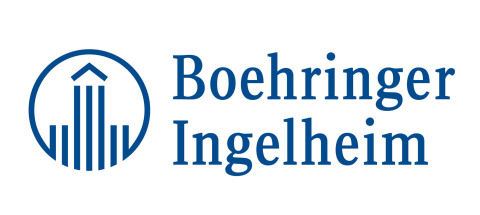INGELHEIM, Germany--(BUSINESS WIRE)--Patient enrolment into the international Phase IIIb RE-DUAL PCI™ study is complete.1 The study evaluates the safety and efficacy of dabigatran etexilate (marketed as Pradaxa®) in atrial fibrillation (AF) patients undergoing a percutaneous coronary intervention (PCI) with stent placement.2,3 This is the first time that two dosages of a non-vitamin K antagonist oral anticoagulant (NOAC) already approved for stroke prevention in AF are evaluated in a dual versus triple antithrombotic regimen after PCI.2-4
"Up to 30% of AF patients may have coronary artery disease and require PCI with stenting5, yet to date only limited data exist on the use of the NOACs during this procedure," said Professor Christopher Cannon, RE-DUAL PCI™ Lead Investigator and Executive Director, Cardiometabolic Trials, Baim Institute for Clinical Research. "The RE-DUAL PCI™ study will provide new insights into antithrombotic treatment approaches in AF patients requiring PCI. We expect the results to be highly clinically relevant for practicing physicians who treat patients such as these in routine care, as the study uses the two dabigatran doses already internationally approved for stroke risk reduction in AF," commented Cannon, who is also a cardiologist at Brigham and Women’s Hospital in Boston and a Professor of Medicine, Harvard Medical School.
Up to two million anticoagulated patients in Europe are candidates for PCI procedures5 which are associated with a risk of serious complications caused by blood clots, including stroke, heart attack, and other major adverse cardiac events.6,7 The current standard of care involves taking three antithrombotic treatments together to prevent these complications, but the associated risk of bleeding increases with the number of antithrombotic treatments combined.8
RE-DUAL PCI™ is part of Boehringer Ingelheim’s innovation in anticoagulation care for patients and physicians. Boehringer Ingelheim launched dabigatran, the first NOAC for stroke prevention in patients with AF4,9, and in 2015 gained approval for idarucizumab, the first and only specific NOAC reversal agent to be approved for use in emergency situations when immediate reversal of the anticoagulant effect of dabigatran is required.10 Idarucizumab is widely available and stocked in over 5,500 hospitals worldwide, including more than 2,500 hospitals in Europe.1
The results of the RE-DUAL PCI™ study are expected during the second half of 2017.1
This press release is issued from our Corporate Headquarters in Ingelheim, Germany and is intended to provide information about our global business. Please be aware that information relating to the approval status and labels of approved products may vary from country to country, and a country-specific press release on this topic may have been issued in the countries where we do business.
~ENDS~
Please click on the link below for ‘Notes to Editors and References’:
http://www.boehringer-ingelheim.com/press-release/re-dual-enrolment





